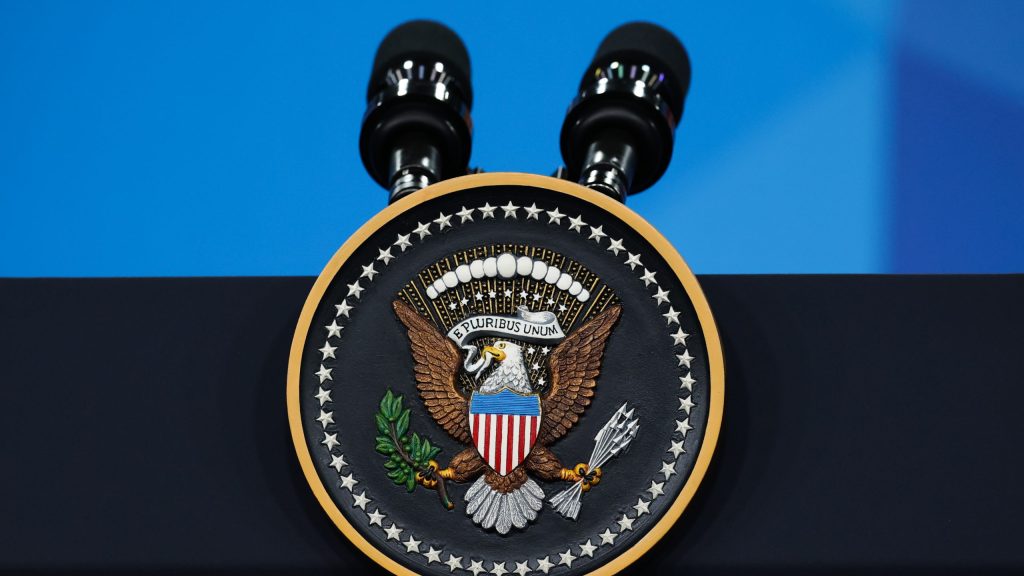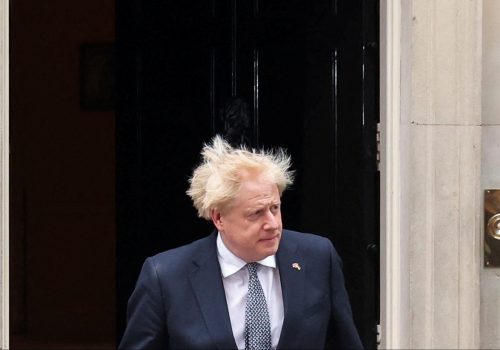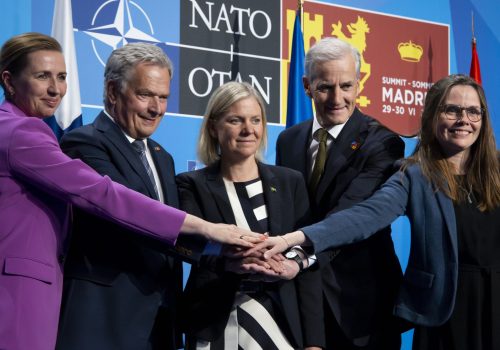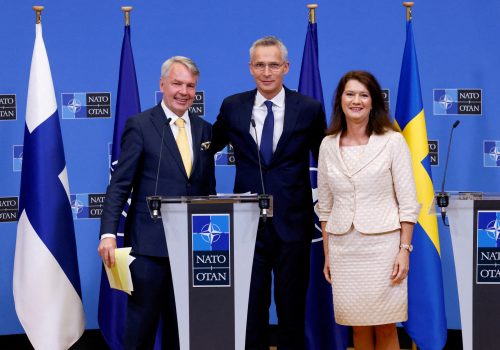The US Senate’s overwhelming ratification on Wednesday of Finland and Sweden’s accession to NATO was a vote of confidence in those countries, in the Alliance itself, and in the US role as leader of the free world—just as two authoritarian powers, Russia and China, are challenging the international system the United States has led since 1945.
Bringing the two Nordic nations into NATO will not only strengthen transatlantic security amid threats from Russian strongman Vladimir Putin, but also signal the continuing political viability—regardless of the bipartisan doldrums on the home front—of American leadership in the free world.
Time and again, that leadership has faced serious trials.
The first US bid for this global role—President Woodrow Wilson’s Fourteen Points speech of 1918, which offered a grand strategy rooted in universalist values to supplant European imperial thinking—failed in spectacular fashion when the Senate rejected the League of Nations. Right- and left-wing variants of isolationism kept the United States passive as Adolf Hitler and Josef Stalin rose to power. When the United States was finally thrust into World War II, its late start effectively forced the country to seek an alliance with Stalin to defeat Hitler.
President Franklin D. Roosevelt tried to reboot Wilson’s universalist vision, but it was his successor, Harry Truman, who put together the political underpinnings for modern US global leadership: a coalition of liberal internationalists and conservative anti-communists who swept away the discredited isolationists on both sides of the aisle. That coalition produced the Marshall Plan, supported what later became the European Union, created a web of international economic institutions to mitigate the cycles of capitalist speculation and collapse, and built a security architecture aimed at containing would-be continental dictators.
The first years of that new international order were not exactly smooth. Early disasters—the Soviet atomic bomb, Stalin’s consolidation of control over Eastern Europe, communist victory in China, and the Korean War—led to a backlash from the right that came to be known as McCarthyism. Losing the Vietnam War led to a backlash from the left. Then, the economic stresses of the 1970s—“stagflation” and an Arab oil embargo—left many Americans, regardless of their political leaning, demoralized about the United States’ ability to influence the world for the better.
From the right, President Ronald Reagan advanced Truman’s Cold War strategy—and more successfully, since the Soviet Union’s internal weaknesses had by then hollowed out its power. From the center-right and -left, respectively, Presidents George H. W. Bush and Bill Clinton advanced Roosevelt’s strategy from the 1941 Atlantic Charter to push for NATO enlargement—something even the highly partisan Clinton impeachment of 1998 did not derail. And later, President George W. Bush enjoyed Democratic support for continuing the NATO-enlargement strategy despite intense acrimony over the Iraq War.
President Donald Trump revived the tradition and some of the rhetoric of rightist isolationism (such as “America First”), including its old hostility to an alliance with Europe and to a universalist strategy more generally. Missouri Republican Sen. Josh Hawley, the sole vote against NATO accession for Finland and Sweden, made that point explicit Wednesday when he said on the Senate floor that the United States did not face major security threats from Europe and, moreover, that while some “think American foreign policy is about creating a liberal world order… they’re wrong.”
But that was just one Senator’s vote. Once again, US international leadership has persisted and prevailed. It has done so because it has mostly worked for the American people, who have witnessed decades of growing prosperity and general peace—and because when it didn’t, it still looked better than the alternatives: Soviet Communism in its time, or re-booted nationalism and spheres of influence enforced through expansionist aggression and war. Facing these challenges, working with allies looks far better than working alone.
The current bitterness of US domestic politics, including the rise of authoritarian politics, leaves little to be proud of. But on Wednesday, the bipartisan tradition of support for internationalism, alliances, and sober US leadership—all embodied by NATO—scored a win.
Daniel Fried is the Weiser Family distinguished fellow at the Atlantic Council. He was the coordinator for sanctions policy during the Obama administration, assistant secretary of state for Europe and Eurasia during the Bush administration, and senior director at the National Security Council for the Clinton and Bush administrations. He also served as ambassador to Poland during the Clinton administration. Follow him on Twitter: @AmbDanFried.
Further reading
Thu, Jul 7, 2022
What does a post-Boris Britain look like?
Fast Thinking By
From both sides of the Atlantic, our experts weigh in on the next act for Great Britain.
Mon, Aug 1, 2022
An urgent message to our fellow senators: Support Finland and Sweden’s swift accession into NATO
New Atlanticist By
Our Senate colleagues should stand resolute in support of the Alliance, our rules-based order, and liberal democracies worldwide.
Wed, Aug 3, 2022
The Senate emphatically backs NATO expansion. What’s next?
Fast Thinking By
What political hurdles remain, and what will Sweden and Finland be up to in the meantime? Our experts break it all down.
Image: The seal of the President of the United States symbol is seen on a podium before President Joe Biden's press conference at the NATO Summit in Madrid, Spain, on June 30, 2022. Photo by Jakub Porzycki/NurPhoto/REUTEURS



